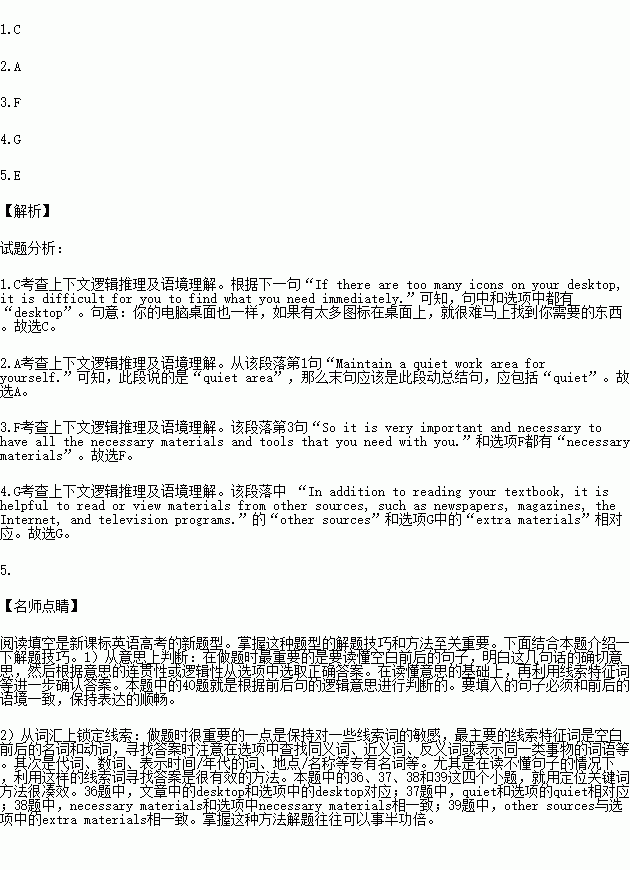题目内容
根据短文内容,从短文后的选项中选出能填入空白处的最佳选项,选项中有两项为多余选项。(答题卡上E涂AB;F涂AC; G涂AD)
How to Study Better
If you want to study better, you should pay attention to learning methods, study skills and study habits. Developing them can help you learn better.
Keep your study area tidy and organized. Papers, books, magazines, or pictures all over your work area may distract you from the work you have to do. 1. If there are too many icons on your desktop, it is difficult for you to find what you need immediately.
Maintain a quiet work area for yourself. Make sure your work area is free of distractions. There are too many distractions at home, such as a phone, music, TV, friends, or family members. Proper study space can usually be found in the public library, school library, or your bedroom. 2.
3. While learning, you need write, calculate and look up something. So it is very important and necessary to have all the necessary materials and tools that you need with you. In this way, you needn’t be busy borrowing them.
4. In addition to reading your textbook, it is helpful to read or view materials from other sources, such as newspapers, magazines, the Internet, and television programs. You can understand what you will learn in class better.
Never forget to take notes carefully in class. Taking notes carefully can help to grasp the key parts. 5. We can say that it is really a successful way to study.
A. A quiet place can help to improve study efficiency.
B. You should know how to schedule your study time.
C. The same is your computer desktop.
D. Try hard to learn knowledge as much as possible.
E. It is convenient to review them later.
F. Having necessary materials is very beneficial to study.
G. Get ready for class by reading extra materials ahead of time.

